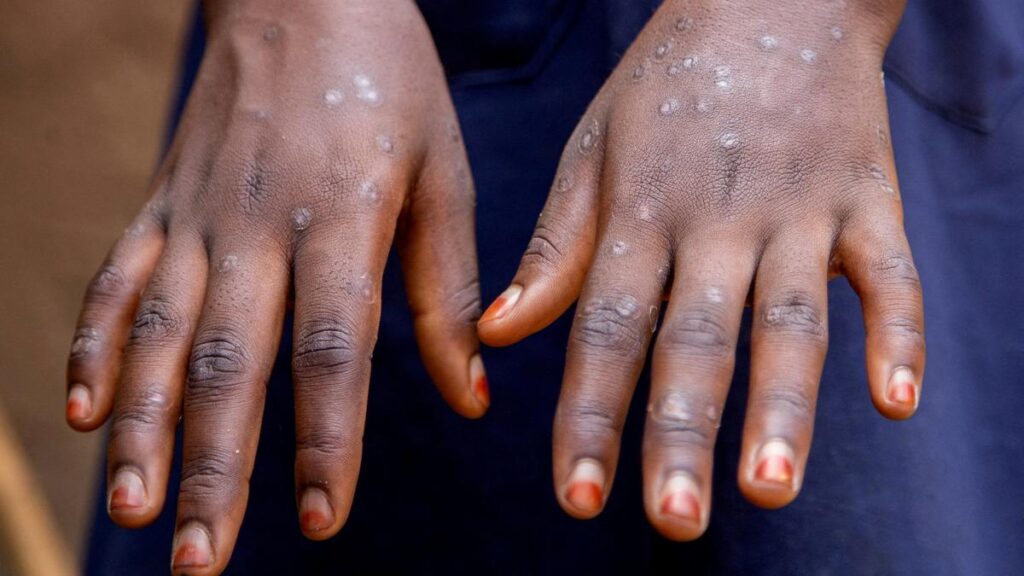Even as the threat of mpox continues unabated globally, with an increasing number of countries outside the Africa region detecting cases, the scientific community seems divided on whether mpox should be given the label of a sexually transmitted disease (STD), with targeted public health interventions to contain it.
Mpox was first declared a global health emergency by the World Health Organization (WHO) in 2022, when an outbreak of the the clade 2b strain gripped several countries in Africa — and while this strain has continued to spread, but at lower levels, cases of a newly-identified and more potent variant, clade 1b, which began to be reported in the latter half of 2024, are still widespread in parts of Central Africa and are also being seen through travel-associated infections from Europe, Asia and North America as well.

The case for labelling mpox an STD
During the 2022 outbreak, 98% of those who were diagnosed with mpox had contracted the disease through the sexual route and were mostly bisexual persons or men who had sex with men (MSM). Thus, in late 2022, the Clinical Infectious Diseases journal carried a commentary, in which some physicians (Allan-Blitz, L.T. ∙ Gandhi, M. ∙ Adamson, P.∙ et al.) argued that the transmission dynamic of mpox was consistent with that of a sexually transmitted disease (STD) and that the epidemiological evidence fulfilled many important requisites of the Bradford Hill criteria. The Bradford Hill criteria, proposed by British epidemiologist, Sir Austin Bradford Hill in 1965, uses a set of nine principles such as strong association, consistency, temporality etc to establish the epidemiological evidence of a causal relationship between a presumed cause and an observed effect. They argued that labeling mpox an STD would “help focus public health interventions, such as vaccinations, testing, and treatment, as well as facilitate focused awareness and education programs toward behavioral modifications to reduce exposures”.
But the same issue of the journal also carried another argument by Aniruddha Hazra and Joseph N Cherabie, stating that the majority of historical outbreaks in the African regions have been localised, with little to no sexual transmission noted — via household contact, or animal-to-human contact via the ingestion of bushmeat. Labelling mpox as an STD might lead to less attention to paediatric cases or other vulnerable groups, it was pointed out

The case against labelling mpox an STD
Kerala, which reported the first case of clade 1b in a person who had arrived from the United Arab Emirates last year, had two more cases of mpox in January this year. All cases were successfully treated and discharged, with zero secondary infections, raising none of the alarm that an infectious disease is normally associated with.
In the light of Kerala’s experience with treating mpox, public health experts have now taken to The Lancet (January 2025), to state that labelling mpox as an STD could backfire and set back all global containment efforts
Public health and infectious disease specialists T.S. Anish, Anaswara Naveen and Reghukumar Aravind have argued that the risk of stigma associated with mpox may outweigh the potential benefits of targeted interventions aimed at containing the current outbreak, declared by the WHO to be a Public Health Emergency of International Concern (PHEIC). They further point out that while planning containment strategies, it is crucial to consider the psychological and social impact of these on affected people and communities, where stigma surrounding mpox, particularly due to its association between STD/MSM, is prevalent.
“The success of public health strategies depend on the context and milieu in which these are placed. People are now coming forward to report mild lesions (even those on the genitalia) and are willing to be admitted in isolation in hospitals and be treated because they have faith in the health system. Right now, mpox carries only the tag of an infectious disease. Treating the disease like an STD, especially one that is associated with MSM, can send people underground,” says Dr. Aravind
Dr. Aravind further adds: “Though the rights of those living with HIV are recognised now, we have still not been able to fully combat the stigma or veiled discrimination that persons living with HIV/AIDs face. But people come forward for treatment because the infection is life-threatening. Mpox however, is rarely fatal. If people choose to remain under the radar and wait out the infection, the potential risk of further human to human transmission is huge.”

‘Do what works for India’
The doctors point out that they are not disputing scientific facts but that “calling a spade a spade” approach in the case of mpox would not bode well as a public health measure. Focussed interventions for specific groups might work in the Western context but in Kerala, and by extension all of India, such branding could be counterproductive.
Almost all mpox patients in Kerala, even in the 2022 outbreak, were people living and working in the Middle East. “Think of their spouses living in Kerala .. attaching labels like STD/MSM to mpox could even lead to the dissolution of marriages. Our IEC (information, education, communication) strategies surrounding mpox are carefully crafted because we cannot afford to ignore the social and psychological consequences of the messages we send out to the community,” a Kerala Health Department official said.
A team from the Union Health Ministry sent to Kerala to assess the mpox situation had insisted on quizzing mpox patients to ascertain the possible source of infection. However, none of the patients admitted to having any sexual encounters. “While we are aware of the primary transmission route, we decided that our focus has to be on treating people and preventing further spread, rather than getting them to spill the beans,” the official said.
Published – February 12, 2025 12:10 pm IST

